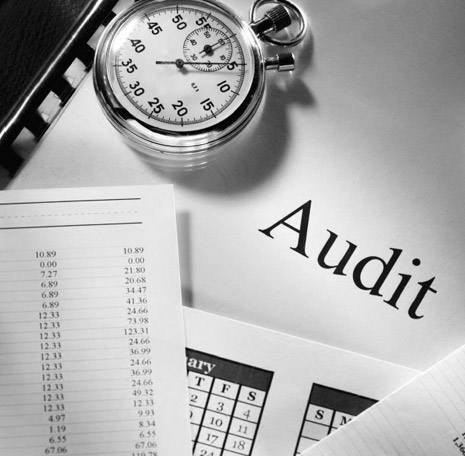Audit Sevices In Dubai UAE
Financial Statement Audit In Dubai, UAE
AUDIT SERVICES IN DUBAI UAE
Financial Statement Audit in Dubai, UAE
External Audit- Financial Audit Service in the UAE
An audit simply refers to examining and giving comments on the items verified. A financial audit implies an examination of the books of accounts and other relevant records. This will provide the auditor necessary information to give his opinion on whether the accounts are properly maintained and complied with necessary statutory, accounting, or financial reporting and auditing standards.
A financial statement audit is an independent appraisal of the financial statements prepared by the organization. The basic objective of a financial statement audit is to provide an independent or third-party assurance that the management has, in its financial statements, presented a “true and fair” view of a company’s financial performance.
The result of this examination is a report by the auditor, attesting to the fairness of the presentation of the financial statements and related disclosures. The auditor’s report must accompany the financial statements when they are issued to the intended recipients or stakeholders.
Financial Audit Services in Dubai, UAE
External Audit
CLA Emirates [formerly Emirates Chartered Accountants Group] – Professional External Audit Firm in Dubai, UAE. With 20 years of experience in offering quality External/Financial Statement Audit Services in Dubai across the UAE.

Call for Consultation
Pradeep Sai | Managing Partner
Mob: +971 556530001
Email: pradeep.sai@claemirates.com
Call for Consultation
Telephone Cell: +971XXXXXXX Partner
Office: +971XXXXXXXX
Email: jhondoe-sps@clientinfo.com

The importance of audit of books of accounts and records
The importance of audit is increasing with the passage of time - as there are always two side of things to review and validate when things are correct (reliable/valid) in what numbers and when compliance with the management of the companies are playing different strategies to boost the market, attracting huge investors and to convince the market about their growth and development.
In order to serve such activities, accounting and auditing team is used up with the market movements and ensure that 'stakeholders' interests are well protected. There has been an growing check of 'Assurance' reports by major companies. UAE will also point out the need for an effective Internal Auditors and Controllers in large organizations.
The purpose of conducting a Financial Statement Audit
Having an expert opinion independently from the management of the company is highly essential to ensure that what is reflected through the balance sheet/Income Statement/Financial position of the company would be present honestly and truthfully. This is where the concept of credibility/faith in the system and the implementation of a business. The confidence/trust the continuation of trade and success. Consider a publicly traded and well-known companies, it would be damaging if there was any mismatch of reporting (financials) against the projected figures; the same could happen within the working to ensure fraud.
The External Audit Procedures
It well-planned verification is necessary to cover all financial items with valid materiality. An audit involves the collection and evaluation of evidence to establish the completeness and accuracy of information, including:
- Planning and risk assessment (focusing upon an understanding of the business and the business environment in which it operates, and using analytical procedures) and determining how far to rely on internal control;
- Actual samples testing, including gathering evidence about the effectiveness of the entity's suite of controls, vouching/tracing on such areas as per guided practice such as a collection of management.
- Substantive procedures, involves a broad array of procedures, of which a sampling.
The different level of assurances from auditor's point of view
An audit provides a high level of assurance, but not absolute assurance as it gives a reasonable degree of assurance that an audit. As is a review, the substantive testing is at a lesser procedure than audit testing and the overall extent of the procedures must have their opinions' financial statements clearly mentioned, in addition to the actual audit.
Sometimes the requirement is only to report on individual items of financial data or on a set of financial statements to report on the fact that; Analysis by an entity to certify only the turnover of the company. The level of assurance in such opinion-spot procedures is again lower than a review engagement.
In the case of a compilation engagement the auditor is called upon to prepare the financial statements – where his expertise is collecting, classifying and including:
- Revenue
- Procurement of insider facilities
- Legality
- Logistics
- Information Technology infrastructure
- Budgets
- Governance
- Statutory Compliance
- Admin & general operations, etc.
1. Evaluation of the approved Internal Audit Plan
An overall view of the audit plan is followed by performing a walk-through, enquiry, questionnaires, etc. Clients are kept informed of the audit during the different phase of the audit.
2. Submission of Draft / Final Report to highlight the issues with risk rating and reporting to the management
Once the compilation/draft is completed, a draft observation are collated in a draft report. This risk rating is attached to all observations with the responsibility of the concerned function. This report is discussed with the Management or Authorized personnel to highlight the issues, concerns, and risks.
3. Follow-up and Action Taken Report
Periodic follow-up of audits or reviews are conducted to check remedial action, which takes to resolve the issues raised. This is done for communicating to the management on the status of observations and its closure status. Any long-pending observations critical to the business will be brought to the notice of the management to set a further course of action.
Assessment/review and updation of the organization's financial and relevant operational activities will be done when the internal auditor is not part of the organization which is considered.
Financial Audit Services in Dubai, UAE
External Audit
SPS Management Consultancies provides professional external audit services in Dubai, UAE, with 10 years of experience.


The Importance of Audit in Financial Reporting
The Importance of Audit of Books of Accounts and Records
The importance of audit is increasing with the passage of time – as there are always two sides of things to review and validate when things are correct (reliable/valid) in what numbers and when compliance with the management of the companies are playing different strategies to boost the market, attracting huge investors and to convince the market about their growth and development.
In order to serve such activities, accounting and auditing teams keep up with market movements and ensure that stakeholders’ interests are well protected. There has been a growing check of ‘Assurance’ reports by major companies. UAE will also point out the need for effective Internal Auditors and Controllers in large organizations.
The Purpose of Conducting a Financial Statement Audit
Having an expert opinion independently from the management of the company is highly essential to ensure that what is reflected through the balance sheet/Income Statement/Financial position of the company would be presented honestly and truthfully. This is where the concept of credibility/faith in the system and the implementation of a business lies. The confidence/trust ensures the continuation of trade and success.
Consider publicly traded and well-known companies – it would be damaging if there was any mismatch of reporting (financials) against the projected figures; the same could happen within the working to ensure fraud prevention.
The External Audit Procedures
A well-planned verification is necessary to cover all financial items with valid materiality. An audit involves the collection and evaluation of evidence to establish the completeness and accuracy of information, including:
- Planning and risk assessment – focusing upon an understanding of the business and the business environment in which it operates, and using analytical procedures and determining how far to rely on internal control
- Actual samples testing – including gathering evidence about the effectiveness of the entity’s suite of controls, vouching/tracing on such areas as per guided practice such as a collection of management information
- Substantive procedures – involves a broad array of procedures, of which sampling is a key component
The Different Level of Assurances from Auditor’s Point of View
An audit provides a high level of assurance, but not absolute assurance as it gives a reasonable degree of confidence. In a review, the substantive testing follows a lesser procedure than audit testing, and the overall extent of the procedures must have their opinions on financial statements clearly mentioned, in addition to the actual audit.
Sometimes the requirement is only to report on individual items of financial data or on a set of financial statements to report specific facts, such as an analysis by an entity to certify only the turnover of the company. The level of assurance in such opinion-spot procedures is again lower than a review engagement.
In the case of a compilation engagement, the auditor is called upon to prepare the financial statements – where their expertise is in collecting, classifying and including:
- Revenue
- Procurement of insider facilities
- Legality
- Logistics
- Information Technology infrastructure
- Budgets
- Governance
- Statutory Compliance
- Admin & general operations, etc.
1. Evaluation of the Approved Internal Audit Plan
An overall view of the audit plan is followed by performing a walk-through, enquiry, questionnaires, etc. Clients are kept informed of the audit during the different phases of the audit process.
2. Submission of Draft/Final Report to Highlight Issues with Risk Rating
Once the compilation/draft is completed, draft observations are collated in a report. A risk rating is attached to all observations with the responsibility assigned to the concerned function. This report is discussed with the Management or Authorized personnel to highlight the issues, concerns, and risks.
3. Follow-up and Action Taken Report
Periodic follow-up of audits or reviews are conducted to check remedial actions taken to resolve the issues raised. This is done for communicating to the management on the status of observations and their closure status. Any long-pending observations critical to the business will be brought to the notice of the management to set a further course of action.
Assessment/review and updating of the organization’s financial and relevant operational activities will be done when the internal auditor is not part of the organization being audited.
Call for Consultation
Telephone Cell: +971527909347 Partner
Office: +971527909347
Email: support@sps-uae.ae

The importance of audit of books of accounts and records
The importance of audit is increasing with the passage of time - as there are always two side of things to review and validate when things are correct (reliable/valid) in what numbers and when compliance with the management of the companies are playing different strategies to boost the market, attracting huge investors and to convince the market about their growth and development.
In order to serve such activities, accounting and auditing team is used up with the market movements and ensure that 'stakeholders' interests are well protected. There has been an growing check of 'Assurance' reports by major companies. UAE will also point out the need for an effective Internal Auditors and Controllers in large organizations.
The purpose of conducting a Financial Statement Audit
Having an expert opinion independently from the management of the company is highly essential to ensure that what is reflected through the balance sheet/Income Statement/Financial position of the company would be present honestly and truthfully. This is where the concept of credibility/faith in the system and the implementation of a business. The confidence/trust the continuation of trade and success. Consider a publicly traded and well-known companies, it would be damaging if there was any mismatch of reporting (financials) against the projected figures; the same could happen within the working to ensure fraud.
The External Audit Procedures
It well-planned verification is necessary to cover all financial items with valid materiality. An audit involves the collection and evaluation of evidence to establish the completeness and accuracy of information, including:
- Planning and risk assessment (focusing upon an understanding of the business and the business environment in which it operates, and using analytical procedures) and determining how far to rely on internal control;
- Actual samples testing, including gathering evidence about the effectiveness of the entity's suite of controls, vouching/tracing on such areas as per guided practice such as a collection of management.
- Substantive procedures, involves a broad array of procedures, of which a sampling.
The different level of assurances from auditor's point of view
An audit provides a high level of assurance, but not absolute assurance as it gives a reasonable degree of assurance that an audit. As is a review, the substantive testing is at a lesser procedure than audit testing and the overall extent of the procedures must have their opinions' financial statements clearly mentioned, in addition to the actual audit.
Sometimes the requirement is only to report on individual items of financial data or on a set of financial statements to report on the fact that; Analysis by an entity to certify only the turnover of the company. The level of assurance in such opinion-spot procedures is again lower than a review engagement.
In the case of a compilation engagement the auditor is called upon to prepare the financial statements – where his expertise is collecting, classifying and including:
- Revenue
- Procurement of insider facilities
- Legality
- Logistics
- Information Technology infrastructure
- Budgets
- Governance
- Statutory Compliance
- Admin & general operations, etc.
1. Evaluation of the approved Internal Audit Plan
An overall view of the audit plan is followed by performing a walk-through, enquiry, questionnaires, etc. Clients are kept informed of the audit during the different phase of the audit.
2. Submission of Draft / Final Report to highlight the issues with risk rating and reporting to the management
Once the compilation/draft is completed, a draft observation are collated in a draft report. This risk rating is attached to all observations with the responsibility of the concerned function. This report is discussed with the Management or Authorized personnel to highlight the issues, concerns, and risks.
3. Follow-up and Action Taken Report
Periodic follow-up of audits or reviews are conducted to check remedial action, which takes to resolve the issues raised. This is done for communicating to the management on the status of observations and its closure status. Any long-pending observations critical to the business will be brought to the notice of the management to set a further course of action.
Assessment/review and updation of the organization's financial and relevant operational activities will be done when the internal auditor is not part of the organization which is considered.
Operational due diligence
Operational due diligence deals with the review of non-financial matters of a business, which may include insurance and risk assessment, HR practices, review of systems and processes, evaluation of the management team, etc.
Financial due diligence
Financial due diligence (FDD) is a process where due diligence is required to validate financial statements. The goal of the process is to ensure that the data shown in the financial statements matches with key information the investor needs. A successful FDD engagement reveals the red flags and exposes the deal breakers and highlights areas that appear weaker to the stakeholders.
Financial due diligence services help the buyer to assess financial risks of a potential acquisition to determine what the benefits, liabilities, risks, and opportunities are. Some of the areas specifically looked at in the analysis of FDD:
- Company history and background
- Operating effectiveness and earnings quality
- Employs efficiency and management quality
- Trends and forecasts of future financial performance
- Current staff structure and benefit assessment
Legal due diligence
Legal due diligence includes investigating any legal risks associated with the target company’s rights and obligations. This issue may involve regulatory approvals, licenses, and other government-related matters.
Macro-environment due diligence
Economic-related risks and unpredictable factors that influence an organization’s decision making and affect its performance and strategies. It considers:
- Economic situation
- Industry dynamics
- IT condition
IT due diligence
It is a fundamental part of the strategic planning process. IT is considered a value-adding part during the implementation of the plan. The marketing audit examines an organization’s internal and external marketing environment and assesses its marketing objectives, strategies, and activities.
Production due diligence
Production due diligence records the production & distribution to ensure that they are appropriately maintained. Also, verify the logbook of machinery to confirm the effective and efficient performance.
Management due diligence
This due diligence examines the actions and tactics of the management to analyze their performance. Management audit involves the review of the organization’s internal controls, policies, procedures, structures, controls, etc. to check the management efficiency or inefficiency.
Information system due diligence
It helps in analyzing the adequacy and controls in the Information Technology (IT) infrastructure. It looks for vulnerabilities and data safeguard mechanisms. These reviews may be performed in conjunction with a financial statement audit or stand-alone for enhancement and detection purposes.

Why CLA Emirates (formerly Emirates Chartered Accountants Group) for Audit in the UAE?
We are a leading chartered accounting firm based in Dubai, UAE. Our firm served in the world of audit with the highest professional quality, real-time service, and outstanding output values. Our qualified technical departments at all times monitor changes in standards and requirements to keep up-to-date with International Financial Reporting Standards (IFRS), auditing standards, and relevant legal provisions are properly complied with.
- External Audit
- Internal Audit
- Due Diligence Audit
- Investigation
- Financial Statement
- Company Liquidation

Why SPS-UAE.AE (formerly Emirates Chartered Accountants Group) for Audit in the UAE?
We are a leading chartered accounting firm based in Dubai, UAE. Our firm served in the world of audit with the highest professional quality, real-time service, and outstanding output values. Our qualified technical departments at all times monitor changes in standards and requirements to keep up-to-date with International Financial Reporting Standards (IFRS), auditing standards, and relevant legal provisions are properly complied with.
- External Audit
- Internal Audit
- Due Diligence Audit
- Investigation
- Financial Statement
- Company Liquidation
RELATED POST
EXTERNAL AUDIT -FAQ
People usually ask
